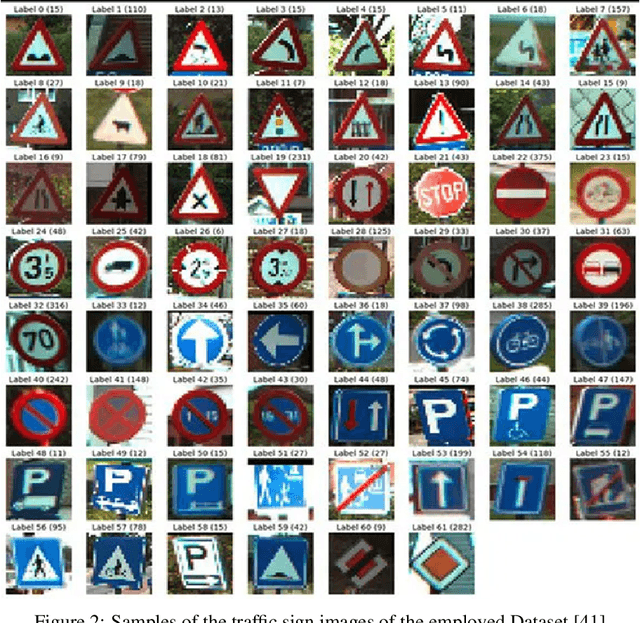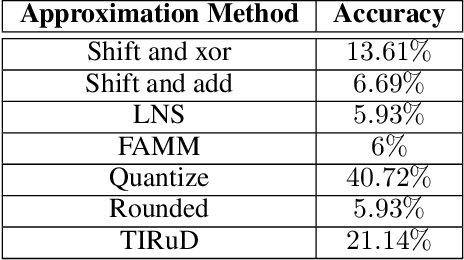Athena Abdi
AppSign: Multi-level Approximate Computing for Real-Time Traffic Sign Recognition in Autonomous Vehicles
Nov 17, 2024



Abstract:This paper presents a multi-level approximate computing approach for real-time traffic sign recognition in autonomous vehicles called AppSign. Since autonomous vehicles are real-time systems, they must gather environmental information and process them instantaneously to respond properly. However, due to the limited resources of these systems, executing computation-intensive algorithms such as deep-learning schemes that lead to precise output is impossible and takes a long time. To tackle this, imprecise computation schemes compromise the complexity and real-time operations. In this context, AppSign presents a multi-level approximate computing scheme to balance the accuracy and computation cost of the computation-intensive schemes and make them appropriate for real-time applications. AppSign is applied to the CNN-based traffic sign recognition unit by approximating the convolution operation of CNN which is the primal solution for image processing applications. In AppSign a novel approximate multiplication method called "TIRuD" is proposed that truncates the operations while keeping the accuracy acceptable. Moreover, it provides the adaptive approximation of the underlying CNN by involving various levels of computation and considering different approximation methods. The efficiency of the proposed AppSign, in real-time traffic sign recognition, is evaluated through several experiments. Based on these experiments, our proposed TIRuD reduces the accuracy by about $10\%$ while saving execution time about $64\%$ over the exact multiplication, averagely. Moreover, employing our proposed hierarchical approximation in various model layers outperforms the exact computation $27.78\%$ considering "AoC" that joins accuracy and computation cost in a parameter.
A novel evolutionary-based neuro-fuzzy task scheduling approach to jointly optimize the main design challenges of heterogeneous MPSoCs
Mar 14, 2022



Abstract:In this paper, an online task scheduling and mapping method based on a fuzzy neural network (FNN) learned by an evolutionary multi-objective algorithm (NSGA-II) to jointly optimize the main design challenges of heterogeneous MPSoCs is proposed. In this approach, first, the FNN parameters are trained using an NSGA-II-based optimization engine by considering the main design challenges of MPSoCs including temperature, power consumption, failure rate, and execution time on a training dataset consisting of different application graphs of various sizes. Next, the trained FNN is employed as an online task scheduler to jointly optimize the main design challenges in heterogeneous MPSoCs. Due to the uncertainty in sensor measurements and the difference between computational models and reality, applying the fuzzy neural network is advantageous in online scheduling procedures. The performance of the method is compared with some previous heuristic, meta-heuristic, and rule-based approaches in several experiments. Based on these experiments our proposed method outperforms the related studies in optimizing all design criteria. Its improvement over related heuristic and meta-heuristic approaches are estimated 10.58% in temperature, 9.22% in power consumption, 39.14% in failure rate, and 12.06% in execution time, averagely. Moreover, considering the interpretable nature of the FNN, the frequently fired extracted fuzzy rules of the proposed approach are demonstrated.
 Add to Chrome
Add to Chrome Add to Firefox
Add to Firefox Add to Edge
Add to Edge